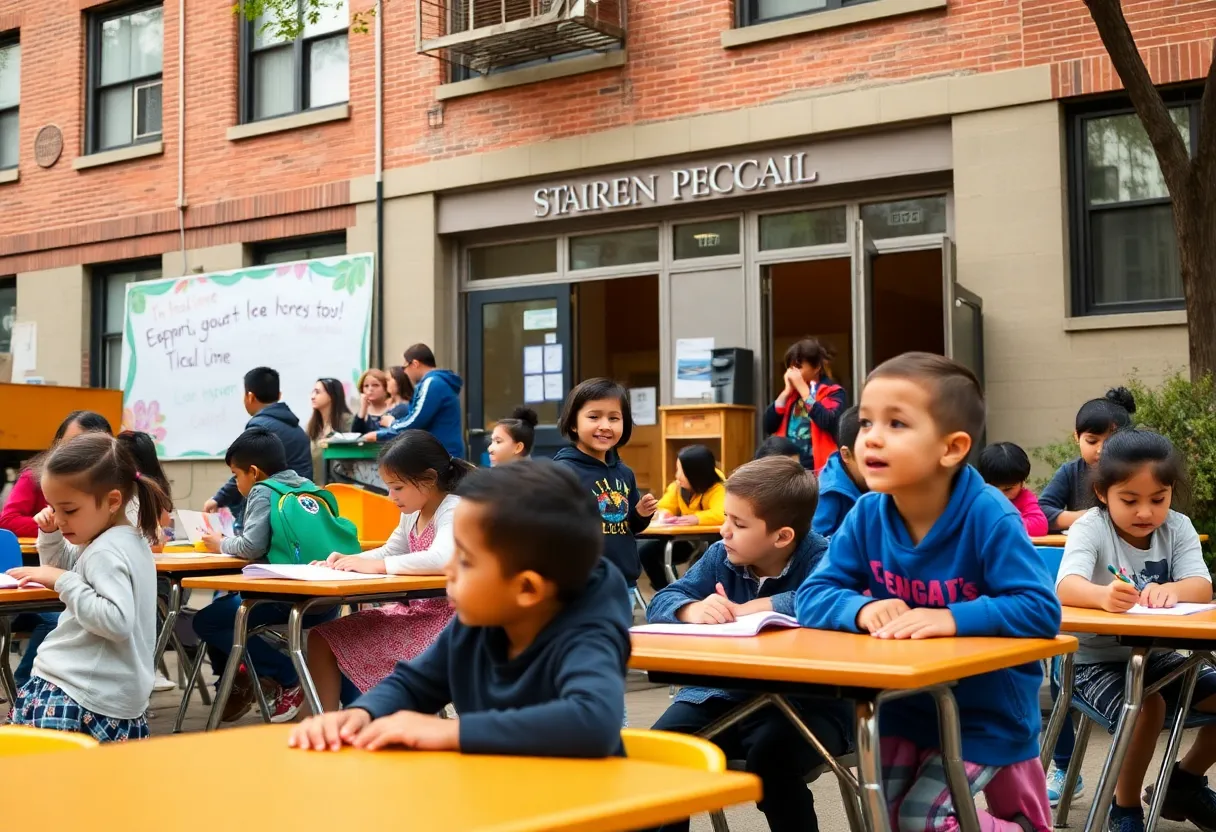News Summary
The Manhattan Country School, a long-standing educational institution in NYC, is at risk of foreclosure due to significant financial issues. With over $27 million in debt and only $82,000 in its bank account, the school’s future is uncertain. Legal troubles have intensified as Flushing Bank sued for defaulting on payments. Despite the challenges, the community is rallying to support the school, holding fundraisers and pushing for property sales, all while the school adapts its operations.
New York City – The Manhattan Country School (M.C.S.), a cherished educational institution on the Upper West Side, is facing an impending foreclosure as it grapples with significant financial troubles. Recent revelations have alarmed parents, who discovered through business reports that the school they have relied upon for nearly 60 years is at risk, with over $27 million in debts and only $82,000 left in its bank account.
In early October, Flushing Bank initiated a $3 million lawsuit against M.C.S., accusing the school of defaulting on interest payments related to a line of credit. This legal action highlights the ongoing financial mismanagement at the school, which is struggling to maintain its obligations, including mortgage payments for its valuable 40,000-square-foot campus located on West 85th Street.
The current fiscal crisis has forced M.C.S. to alter its academic calendar, pushing the last day of school up a week due to insufficient funds. Despite these challenges, parents have quickly mobilized to support the institution, raising hundreds of thousands of dollars through fundraising efforts to ensure back payroll for the staff and establishing a food pantry to assist employees facing hardship.
School’s Unique Model and Enrollment
M.C.S. caters to approximately 250 students, offering education from preschool through eighth grade. The school operates with a commitment to equity, providing access to children from both affluent families and undocumented immigrants through a sliding-scale tuition model. This approach, inspired by Frank Roosevelt, grandson of President Franklin D. Roosevelt, allows families to pay according to their respective incomes, though the school has a history of not requiring tax returns for verification.
The school’s tuition ranges from around $51,000 to $57,000 per student, dependent on the grade level. Unfortunately, financial deficits have been persistent, with reported losses exceeding $2.5 million in 2023 alone and annual losses that date back to at least 2010, apart from a brief exception in 2016. The mounting debts and operational difficulties have exemplified how even long-established institutions can face challenges amidst a changing economic landscape.
Recent Developments and Community Response
Following increasing media attention, M.C.S. has made public efforts to communicate with its community. Former board chair Roxanne Elings reached out via email to reassure parents and stakeholders about the school’s endeavors to rectify its financial situation. Additionally, a rally was held on June 3, uniting students, parents, teachers, alumni, and community members to voice their support for the institution.
In a potential move to stabilize its financial position, M.C.S. is attempting to sell its Upper West Side property for $39.8 million, a significant markup from the $28 million purchase price nine years ago. The school is considering both a wholesale sale and a sale-leaseback arrangement to continue operations at the current location. The value of the property, coupled with the unique attributes of the school, including an experiential learning campus upstate, adds further complexity to the unfolding situation.
Broader Context and Future Prospects
The financial struggles of M.C.S. reflect a broader trend affecting upscale educational institutions in the region, with notable counterparts, like Léman Manhattan, also facing their own financial challenges. As M.C.S. navigates its precarious situation, the coming weeks will likely be crucial in determining the future of the school and the continued education of its students.
The community remains hopeful that the efforts to fundraise and sell property will allow M.C.S. to emerge from this financial crisis, ensuring that it can continue its longstanding mission of integrating diverse socioeconomic backgrounds within its student body while providing a quality education.
Deeper Dive: News & Info About This Topic
HERE Resources
New York City Establishes Economic Ties with Israel
New York City Council Supports Fair Pricing Act
Additional Resources
- The New York Times: Manhattan Private School’s Collapse
- I Love The Upper West Side: MCS Leadership Ousted
- Bloomberg: The Demise of MCS
- West Side Rag: MCS Plans to Sell Building
- Google Search: Manhattan Country School Financial Troubles








